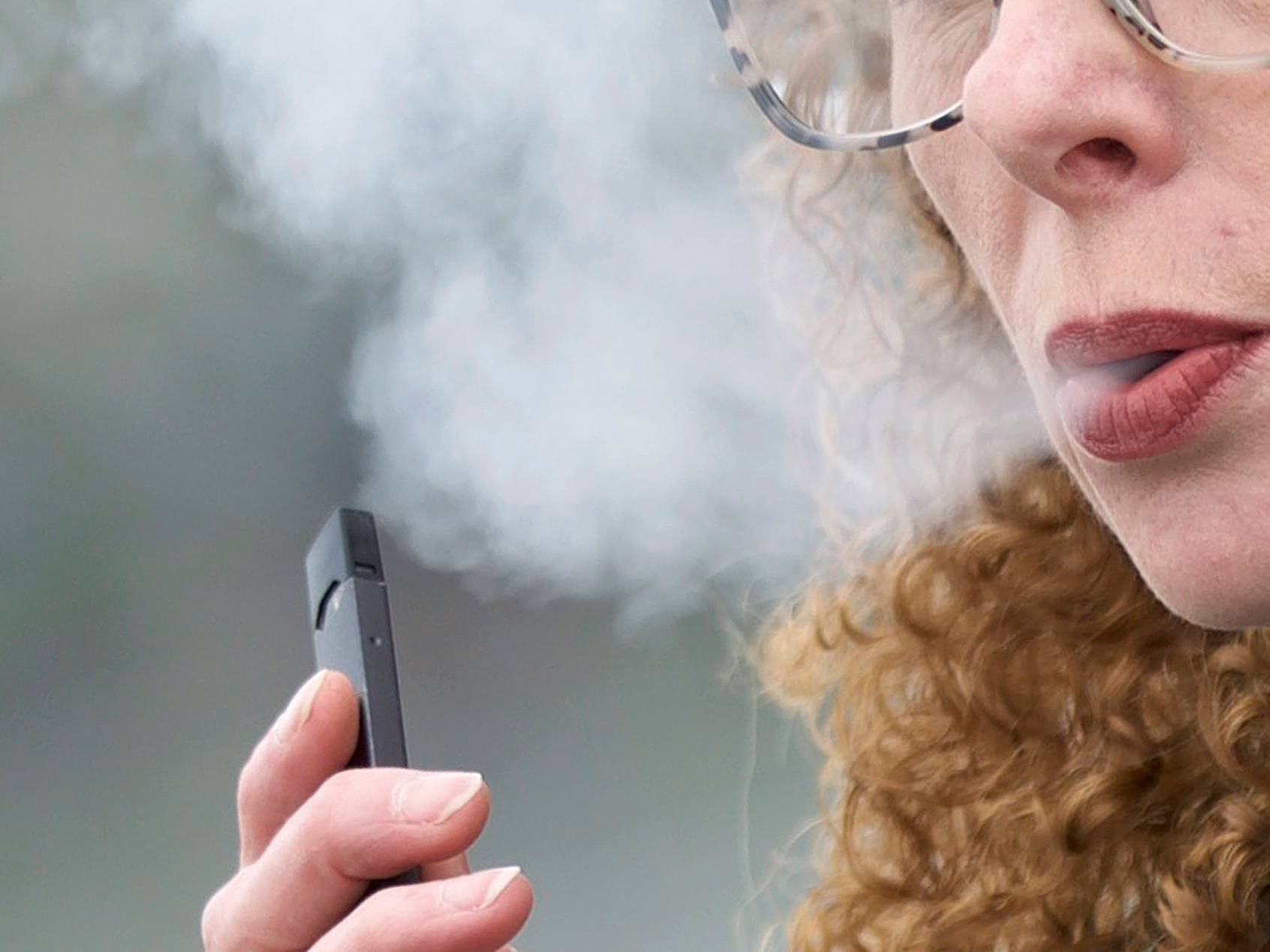- A new study suggests that the aerosol vape users inhale deposits bad bacteria into the mouth. The bad bacteria increase a person’s risk of cavities, infection, bad breath, and oral cancer.
- If left untreated, poor oral health conditions can affect the rest of a person’s body. Chronic oral health problems have been linked to diabetes, Alzheimer’s, and heart disease.
- The study author suggested e-cigarette users work towards cessation to prevent oral health problems.
- Visit Insider’s homepage for more stories.
It’s traditional smokers, not vape users, that are typically considered to have poor hygiene, bad breath, and risks of poor health because of their habit.
But a new study suggests that vaping could also be detrimental to oral health and breed tooth decay, smelly breath, infection, and even oral cancer.
The study, which comes from researchers at NYU’s College of Dentistry and was published in the journal iScience, found that the aerosol users inhale when vaping from e-cigarettes deposits high levels of bad bacteria into the mouth, therefore disrupting a person’s oral microbiome and upping the risk of developing infection or disease.
To investigate, lead researcher Deepak Saxena, a professor of basic science and craniofacial biology at NYU, and his team took saliva samples from 39 healthy non-smokers, 40 e-cigarette users, and 40 traditional cigarette users.
On average, e-cigarette users vaped half an e-cigarette daily and traditional smokers had 11 cigarettes daily.
Saxena and his team then used DNA-sequencing technology to determine the bacterial content of the participants' saliva, and they found that e-cigarette users had higher levels of molecules in their saliva that make a person susceptible to oral inflammation and infection than the non-smokers.
When e-cigarette users were compared to traditional smokers, Saxena told Insider the results surprised him because their saliva bacterial levels were almost as high as the bacteria levels of smokers.
This findings goes against previous thinking that e-cigarettes are a safer alternative to smoking.
"E-cigarettes are a pretty new product as compared to traditional cigarettes, and still they can influence the oral micro environment," which can lead to larger health problems like cavities, oral infections, bad breath, and oral cancer, Saxena told Insider.
Chronic oral health problems have been liked to diseases like Alzheimer's and diabetes
Saxena's study focused on the oral health implications of e-cigarette use, but untreated oral conditions can also have an effect on other areas of the body.
People who have untreated or chronic cavities, for example, are more likely to develop full-body conditions like Alzheimer's, type 2 diabetes, and cardiovascular disease, Saxena said.
According to the Mayo Clinic, poor oral health increases a person's risk of pneumonia and premature birth or low birth weight in pregnant women because the bacterial overgrowths in the mouth affect other areas of the body like the heart and lungs.
For this reason, Saxena advised current e-cigarette users to wean themselves off their devices and that traditional smokers who are considering e-cigarettes for cessation work with a doctor who can help them reduce the nicotine concentration they consume on a weekly or monthly basis. That way, they won't become dependent on the device.
There were caveats to the study. The control groups were fairly small and Saxena's team only look at unflavored e-cigarette vapor, so their results may not encompass the oral health of the general population. For that reason, Saxena said he'd like to do more research on how various vape flavor agents affect oral health.
Vaping can also cause bacterial infections in the lungs
Previous research has also suggested the e-cigarettes aren't a safer alternative to traditional cigarettes.
A December 2019 study in the journal Respiratory Research, suggested vaping is just as bad for a person's lung health as traditional smoking when it comes to lung-disease risk.
To come to their conclusion, the new study's researchers exposed four different strains of lung bacteria to cigarette smoke from Marlboro Red cigarettes and unflavored vapor from a Vapourlite brand vape. They found that both the smoke and the vapor caused the bacteria to grow more than bacteria samples that weren't exposed to vapor or smoke.
The findings are concerning because when the bacterial strains the researchers studied, H. influenzae, S. aureus, S. pneumoniae, and P. aeruginosa, build up in the lungs, they can lead to increased lung inflammation, decreased lung function, and chronic lung disease risk that makes breathing difficult. In the worst case, chronic lung damage can lead to hospitalization and the need for a ventilator to help a person breathe.
"At the very least, this work should open a frank debate on vaping safety," Jose Bengoechea, director of the Wellcome-Wolfson Institute for Experimental Medicine and co-author of the study, said in a press release.

